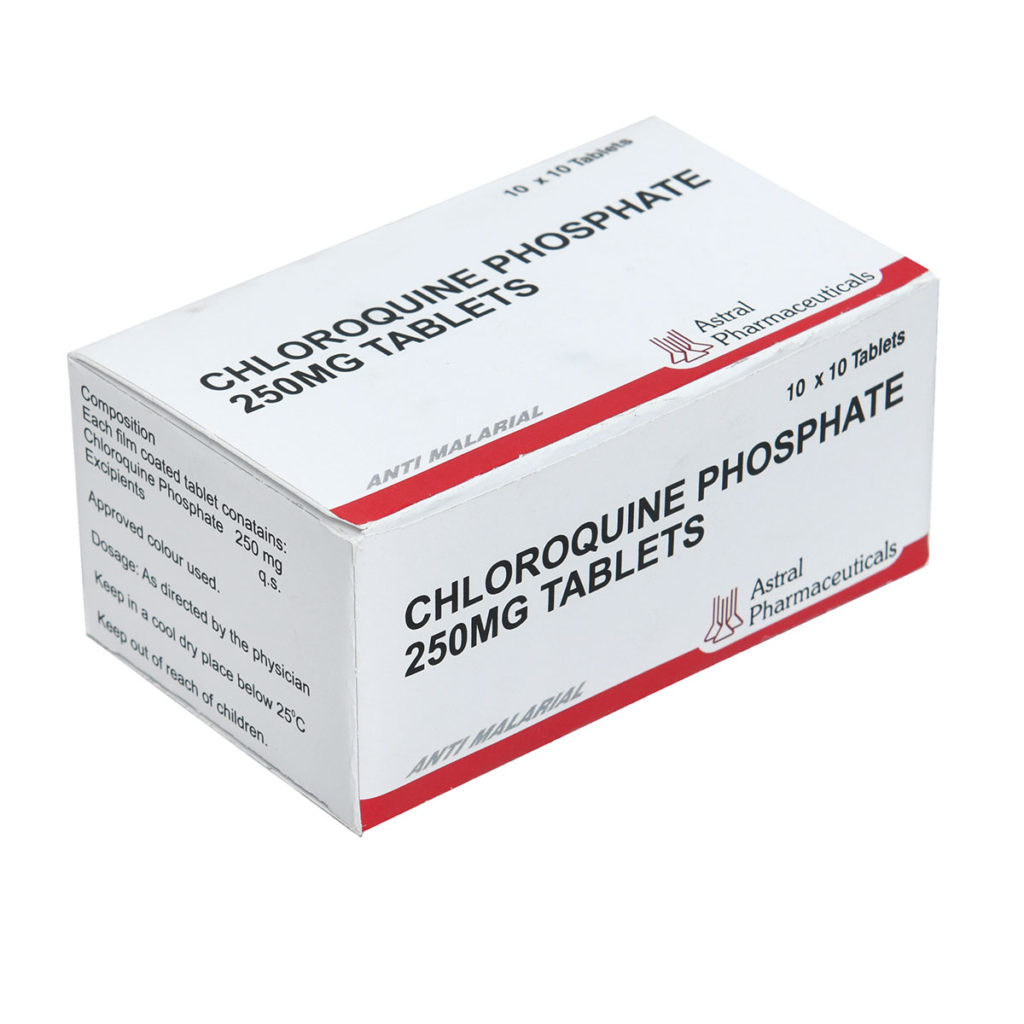A Clinical Virologist, Dr Adeola Fowotade, has cautioned Nigerians against the use of Chloroquine, an anti-malaria drug, for the treatment of coronavirus, also known as COVID-19.
Fowotade, a staff of the University College Hospital Ibadan, gave the warning on Friday in an interview with the News Agency of Nigeria (NAN) in Ibadan.
The virologist said the Nigeria Centre for Disease Control (NCDC) has not included the drug as a treatment option for COVID-19 in its treatment guidelines.
She said while early reports from China showed the potency of Chloroquine in treating patients with COVID-19, there was no formal and in-depth study to get information on its efficacy and safety.
“Currently, the studies we have on using chloroquine to treat COVID-19 are mainly from China and they are still evolving research.
“They found that chloroquine has a way of inhibiting COVID-19 by reducing the multiplication of the virus introduced to the cell lines.
“The studies also reveal that chloroquine helped to improve recovery in some patients and also helped to reduce the number of deaths from COVID-19,” she said.
Fowotade said that although chloroquine has shown potency in treating coronavirus, NCDC was hesitant to approve it for COVID-19 treatment until adequate clinical trials were conducted.
According to her, there is no enough evidence to also ascertain a safe and effective dosage to use in treating the virus.
“Clinical trials take time but are necessary. A clinical trial is something that is meant to go through a number of phases starting from what they do in cells and they also need to do the same things in animals and they also want to look at the safety of the drugs.
“For instance, if chloroquine is going to be used to treat COVID-19 there is a probability that you will be using it at a much higher dose than what you use for malaria and check its safety at that higher dose.
” All these need to be checked even before you get to a human clinical trial.
“However, because of the urgency of the situation, the studies were done in China simply moved from cells to humans and so the result that they have generated from there is not sufficient enough for us as a country and the NCDC is not adopting chloroquine at the moment.
“In any case, the thing about viral infections ultimately is that most viral infections are self-limiting in immunocompetent persons, the immune system is sufficient to clear the virus.
“Ideally, for persons that have a good immune response by themselves, if you give them good supportive care, the immune system is able to take care of the viral infection by itself,” she said.
The virologist also cautioned Nigerians against using the antimalarial chloroquine as a prophylactic or preventive drug for COVID-19.
She warned against panicking to avoid falling prey to misinformation and unfounded claims about coronavirus with regard to its prevention and treatment.
“If the virus is not there, then there is no use or basis whatsoever for taking chloroquine as prophylaxis.
“This is just like what happened during the outbreak of the Ebola virus when people were told to take salt, the same is happening with chloroquine, this is wrong and should be discouraged.
“When people get misinformed, they take wrong actions and refuse to observe the necessary and correct actions.
“Ultimately, this puts the lives of people at risk, increase the spread and makes nonsense of the entire control effort,” she said.
NAN reports that chloroquine, which is a medication used to prevent and treat malaria was a widely prescribed treatment for malaria in Nigeria.
The Food and Drug Administration (FDA) in the United States on Thursday said it was looking at widespread and pragmatic clinical trials of the antimalaria drug for COVID-19.
It has yet to approve chloroquine for the treatment of the coronavirus.
NAN also reports that COVID-19 has infected over 200,000 persons world-wide, including 21 confirmed cases in Nigeria.



Leave a Reply